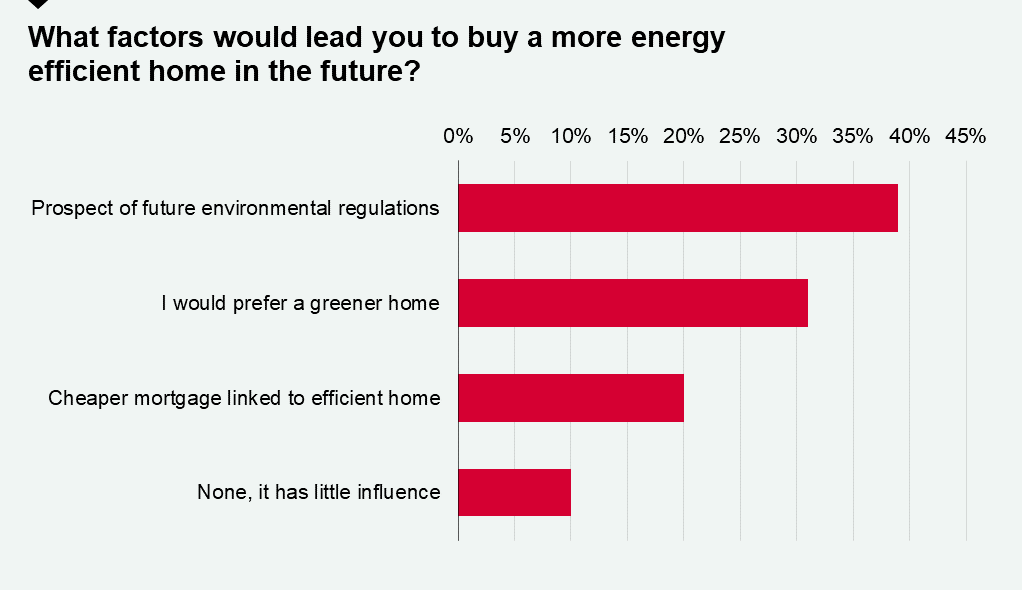Green homes gaining ground with buyers
New survey suggests the energy efficiency of a home is becoming an important consideration.
2 minutes to read
A growing focus on the environment, which culminated in the COP26 summit in Glasgow last month, appears to have struck a chord with the public, with the energy efficiency of a home important to more than eight in ten people.
Asked how important the energy efficiency of a home was, 86% of respondents rated it as either very important or important. Only 3% said it had no relevance, according to Knight Frank’s latest UK sentiment survey.
Buyers appear to have a mixture of practical and aspirational motivations, with 39% stating that the prospect of future environmental regulations impacting the value of their home would influence their decision to buy a more energy efficient property.
Almost a third (31%) of respondents said they would prefer a greener home and would be willing to pay more for it if required. Just 10% said the energy efficiency of a home would have no influence on their decision-making.

It comes as the latest English Housing Survey revealed that while the energy efficiency of the country’s housing stock continues to improve, 87% of dwellings were in EPC bands C or D in 2020 compared with 61% in 2010, meaning more action is required to hit the government’s net zero target by 2050.
One of the incentives that the government is exploring with lenders to achieve this is green mortgages, which the UK Green Buildings Council also backed in its Whole Life Roadmap, which was published for COP26.
Green mortgages typically offer a discounted purchase rate for energy efficient homes (EPC rating A or B), or for environment-friendly home improvements. While the green mortgage market is nascent, 20% of respondents said they would purchase a more efficient home in the future if it meant cheaper mortgage finance.
“With the pandemic raising questions about where and how we live, the responses to our latest survey suggest that buyers are increasingly considering the environmental impact of a home as part of their decision-making process,” said Chris Druce, senior research analyst at Knight Frank.
What’s most important in a home
With 58% of survey respondents either already working from home more frequently (or planning to) than before the pandemic (compared to 54% in July), access to high-speed broadband was perhaps unsurprisingly the leading requirement when purchasing a home, with 73% saying it was more important than before the pandemic.
A home office or study (67%) and a garden or outdoor space (64%) scored the next highest, consistent with previous surveys during the pandemic.
However, a charging point for an electric vehicle – the first time we’ve asked this particular question – was more important to nearly half (48%), underlining people’s growing concern about their carbon footprint.
In July, 52% of survey respondents said the environmental impact and carbon footprint of a home was more important to them following the lockdown of early 2021. This was an increase from 40% in February this year.
Photo by Zoe Ella Mumford on Unsplash